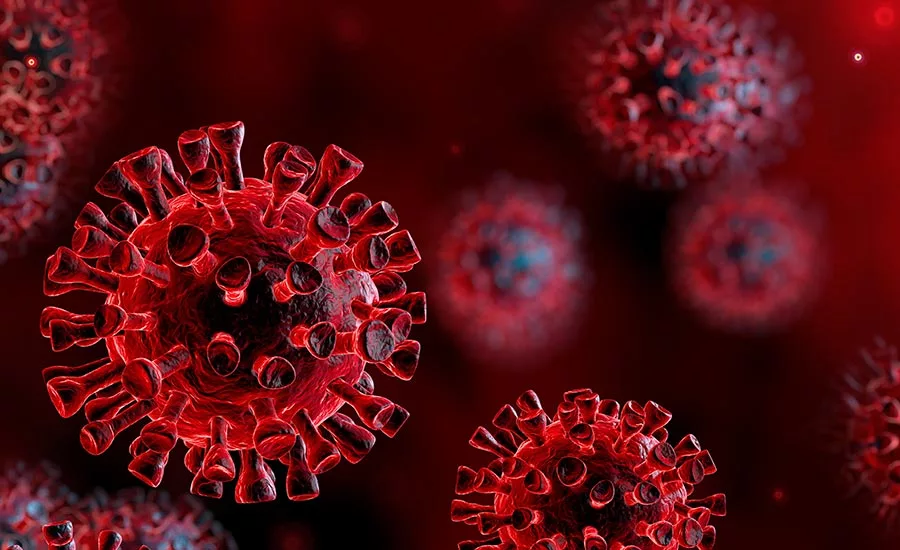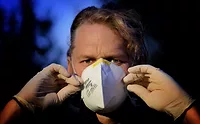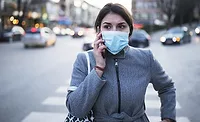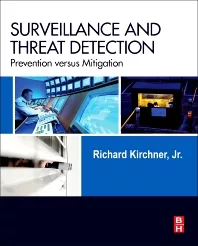Shortages of Masks, Test Kits, Ventilators as Cities Face Coronavirus Threat

As of today, Friday, March 27, the United States leads the world in the number of confirmed coronavirus cases. According to a running count by Johns Hopkins University, the number of people infected in the U.S. topped 92,932. That is ahead of 81,997 cases in China and 80,589 cases in Italy.
A survey by the U.S. Conference of Mayors revealed U.S. cities are facing a shortage of essential items such as face masks, test kits, personal protective equipment, ventilators and other items needed by health and safety personnel has reached crisis proportions in cities across the country. The result is that the safety of city residents and the health workers and first responders protecting them is being seriously compromised, says the survey.
The survey described in the report illustrates the scope and severity of the need for COVID-19 emergency equipment in this nation’s cities. "It shows that, despite their best efforts, most cities do not have and cannot obtain adequate equipment and supplies needed to protect their residents. This is a life-threatening crisis that will continue unless the federal government does everything in its power to help us safeguard our first responders and health care workers – our first line of defense – and the millions of other public servants in our cities whose work today puts them at risk," says Tom Cochran, CEO & Executive Director of the U.S. Conference of Mayors.
To support its requests for emergency federal assistance for cities during the COVID-19 crisis, the U.S. Conference of Mayors conducted a very brief, rapid-turnaround survey of cities (sent to mayors late Friday, March 20 with a Tuesday, March 24 response deadline) intended to document the magnitude of the need for vital protective equipment and supplies. Results of the survey provide a timely snapshot of unmet needs confronting city leaders across the nation today.
Responses to the survey were received from 213 cities across 41 states and Puerto Rico. Populations of the cities range from under 2,000 to 3.8 million; six of the cities have populations over one million; 45 have populations below 50,000. The survey cities together are home to 42 million people.
Mayors and other officials in the cities responding provided information, to the extent it was available to them, on whether adequate supplies of emergency equipment – specifically, face masks, personal protective equipment (PPE), test kits and ventilators – were available for use by medical personnel and first responders. For each category of equipment, they were asked for estimates of quantities needed. They were also asked for examples of other types of equipment needed, whether state governments or other sources have supplied any of the needed equipment, and whether quantities supplied are adequate to meet needs. Survey findings are calculated based on the number of cities that responded to the particular question.
Survey Responses
Analyses of responses to the survey questions show the following:
- 91.5% (192) of the cities do not have an adequate supply of face masks for their first responders (including police, fire, and EMTs) and medical personnel.
- 88.2% (186) do not have an adequate supply of personal protective equipment (PPE) other than face masks to protect these workers.
- 92.1% (186) do not have an adequate supply of test kits.
- 85% (164) do not have an adequate supply of ventilators for use by health facilities in their city or area.
- 62.4% (131) have not received emergency equipment or supplies from their State.
- Of those receiving help from their State, 84.6% (66) say it is not adequate to meet their needs.
For emergency equipment, analysis of these responses by city size found little variation from largest to smallest cities in the percentages of adequacy of supplies. While a somewhat higher percentage of larger cities reported receiving equipment and supplies from their State, cities reporting inadequacy of these supplies did not vary by size.
Across the survey cities able to provide estimates, needed are:
- 5 million face masks;
- 4 million PPE items;
- 9 million test kits; and
- 139,000 ventilators.
Personnel Affected
Virtually all of the survey respondents indicated that PPE items needed were for use by their first responders, including police, fire and emergency medical, followed by hospital and other health care personnel. But concerns about COVID-19 threats to personnel go well beyond first responders, and most also identified other categories of personnel for whom masks were needed, says the report.
In general, these included personnel having direct contact with the public on a regular basis. Examples included city workers employed in public transit, public works, sanitation/solid waste, water/wastewater, code enforcement, building inspection/maintenance, community services (including contact with homeless persons), public housing, food distribution, corrections, elections, decontamination/cleanup, childcare, and many other areas.
Detailed Needs
While the survey focused on just four categories of equipment as a measure of cities’ readiness to respond to COVID-19, respondents were invited to identify in greater detail the equipment and supplies needed but not available in their areas. In addition to N95 and surgical masks, their responses included PPE items such as eye protection, gowns, aprons, gloves, shoe covers/booties, and Tyvek suits, as well as disinfectant sprays/wipes, hand sanitizer, digital/no-touch thermometers, portable hospital beds, portable showers, handwashing stations, anti-bacterial soap, bleach, food prep supplies, medical refuse bags, and replacement filters for filtering devices.
City examples of needed quantities specified for many of these items include:
- Dayton – 200,000 N-95 masks; 150,000 pairs gloves; 150,000 eye protectors; 15,000 P-100 PAPR filters; 15,000 coveralls; 100,000 digital thermometers; 175 hand sanitizers; 10,000 8-ounce, 5000 16-ounce disinfectant spray/cleaner; 15,000 tubs disinfectant wipes; 15,000 Tyvek suits; 150,000 face shields; 15,000 packages anti-bacterial soap; 1,200 gallon-jugs viral swabs; 60,000 pairs shoe covers; 40,000 head covers; 20,000 disposable aprons; 1,000 gallons bleach
- Toledo – 100,000 gowns; 200,000 pairs gloves; 10,000 temporal thermometers; 50,000 tubs disinfecting wipes; 50,000 face shields; 60,000 CAPR/PAPR filters; 50,000 bottles hand sanitizer
- Henderson – 40 cases hand sanitizer; 100 cases cleaning wipes; 50 thermometers; 100 respirators; 300 replacement filters
- Bridgeport – 50,000 sanitizing wipes; 100,000 pairs latex gloves; 1,500 P100 masks.
- Fairburn – 50,000 pairs plastic gloves; 50,000 protective suits; 50,000 thermometers; 50,000 hand sanitizers; 50,000 disinfectant wipes; 100,000 rolls toilet tissue; 100,000 boxes kleenex; 100,000 bottles over-the-counter fever reducers; 200,000 bottles water.
- Meriden – 20,000 pairs gloves; 500 thermometers
- Santa Barbara – For police and firefighter use alone: 4,000 N-95 masks, medical gowns, pairs of safety glasses
- Sugar Land – 3,000 pairs goggles; 3,000 pairs shoe covers
- Davie –100 face shields, surgical masks, goggles, gowns; minimum 5,000 packages equipment wipes, hand wipes; 1,000 canisters cleaning chemicals
- Detroit – 18,000 surgical masks
- Middletown – For its 93 police officers and 82 fire personnel: N95 masks, 200 thermometers; surgical masks and gowns; 400 oxygen delivery devices, especially bag-valve-mask devices to deliver resuscitation. The City noted that its supply of disinfectant wipes and hand sanitizer spray will be gone in one week.
Looking for a reprint of this article?
From high-res PDFs to custom plaques, order your copy today!







